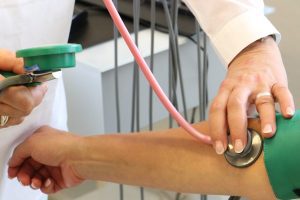Looking to earn extra cash while contributing to science? Participating in medical research and clinical trials in Australia is a unique way to do just that. Researchers are always on the lookout for volunteers to test new treatments, medicines, and therapies under strict ethical and safety guidelines. This is a great way to earn some extra cash, learn more about your health, and help researchers make discoveries and develop new treatments.
It’s a flexible side hustle with varying rates of pay, and there are heaps of options depending on what you feel comfortable with.
What does it involve?
Some of the ways you can make money with medical and health research include:
– Short surveys, often done via Survey Monkey or a similar webform
– Phone interviews
– Lifestyle studies eg. completing a food diary for a week, recording sleep habits in a journal etc
– Trialing new health-related programs or apps
– Testing the effects of small amounts of alcohol or stimulant medication on driving ability in a driving simulator
– Trialing new treatments or medications
 |
| Some research trials involve trying out new medications |
Some studies are only available in-person (eg. for face-to-face interviews or testing), so if you live in one of the capital cities, or near a university you might find there’s more opportunities available.
What are the risks?
As with most research and trials, there is some risk involved, depending on what you choose to participate in.
Highest Risk:
Trials of new medications, vaccines and other medical treatments usually pay very well, but the flip side is that they usually carry the highest risk. For this reason, participants usually go through a very thorough screening process. The trials are also conducted in a clinic setting under the close supervision of medical staff. The Australia Government’s Clinical Trials website has some great information highlighting the risks and benefits of participating.
Lower risk:
If you’re looking for something a little less risky, have a look at studies offered through universities. Many are survey or interview-based, or involve testing a low-risk health intervention. This might include following the Mediterranean diet, trying a vitamin supplement, an following an exercise program. It can also include testing medical devices such as orthotics or anti-snore devices.
Sometimes medical assessments are required for these types of trials, but are generally less invasive than with inpatient trials. Examples of these assessments might be observations, such as weight, resting heart rate, blood pressure etc, and sometimes pathology tests, mouth swabs, or DEXA scans.
 |
|
| Some trials require a basic health check |
Online surveys, app testing etc are the lowest risk. There’s usually a brief at the start of each study that outlines any potential risks, so that participants can provide informed consent. Sometimes this section will advise that some questions in the study have the potential to cause emotional distress. This is usually for topics related to ethics and morals, or for mental health-related, or sensitive topics.
 |
| Many surveys can be completed online or via Zoom |
How much can you make?
There’s a lot of variation here, so make sure you’re completely clear on what the payment/reimbursement is before signing up!
Cash payments are available for a lot of studies, and the amounts vary from as little as $5 to $1,000+ for sleep studies and some clinical trials.
However, not all research volunteers are paid! Make sure you read the details carefully as some studies are completely unpaid, and some offer other, non-cash incentives. these might include:
– No cash payment, but participants receive a free health check/blood tests/scans etc
– For students at universities that are running studies, course credits are sometimes offered
– Reimbursement of travel expenses, or meals
– Gift card or vouchers
– Entry into a prize draw to win a voucher
How do I find clinical trials and research studies?
If you’re looking for high-paying trials ($1,000 – $13,000+) then sleep studies, medication trials and vaccine trials are your best bet. Due to the higher risk, however, make sure you discuss it with your doctor first.
For these types of trials:
– Most are conducted in capital cities (though some allow you to travel from interstate)
– Participants often need to stay at the clinic for a period of time (from overnight to a couple of weeks)
If you take part in an overnight trial, meals and entertainment such as video games and Netflix are usually provided. This is on top of the payment you’ll receive.
High-Paying Clinical Trial Websites:
Located in South Australia, CMAX offers trials from between 1-30 days. For those staying overnight, the facilities include TV, Netflix, video games, a comfortable bed, plus you’ll receive meals and a free health check.
Healthy volunteers are welcome to register.
Nucleus Network offers clinical trials in both Melbourne and Brisbane, but they accept volunteers from interstate who are happy to travel.
Participants are reimbursed up to $600 per day for their time.
Trials vary in length, from a single outpatient visit to an inpatient stay of several nights.
Located in Perth, Linear Research are conducting a number of trials for both healthy volunteers, and those with specific health conditions. Payments vary, but are volunteers for current trials can receive anywhere from $1,800 to more than $13,000 for a 12-night trial.
———-
If you’d prefer not to take part in new medication trials or lengthy overnight stays, there are plenty of other opportunities available.
Universities are particularly good for finding trials to participate in. There are also state/territory and federal government websites listing clinical trials, as well as websites run by various organisations, charities, and interest groups.
Here are some of the other places to find research trials in Australia:
*listed by state/territory, but some offer online participation
Queensland
This site is definitely worth having a look at, as you can apply filters to select online and compensated studies only (though some compensation methods are course credit or prize draw entry).
University of the Sunshine Coast
USC conducts research trials at 4 locations in Queensland: Brisbane, Buderim, Morayfield, and Sippy Downs.
Victoria
Swinburne University – Centre for human Pharmacology
Swinburne University – Centre for Mental Health
Monash University – School of Translational Medicine
Skin Health Institute (Carlton, VIC)
Tasmania
The Menzies Institute for Medical Research at the University of Tasmania
NSW
South Australia
Australia-Wide
Mental Health-related studies
Trauma and PTSD-related studies
Australian New Zealand Clinical Trials Registry
This is an extensive database of clinical trials in Australia and New Zealand, with a focus on new treatments for specific health-related conditions.
Most of the trials are unpaid, however if you’re looking for paid trials, try entering ‘reimbursed’ or ‘voucher’ in the keyword field to narrow down your search.
The other place where you might discover research trial opportunities is in your local community. Keep an eye out for posters or brochures in medical clinics, pharmacies, community noticeboards, libraries, at your college or university, or your workplace.
———–
* If you’re considering participating in medical research (especially a clinical trial), make sure you discuss this with your doctor and/or medical team first.
